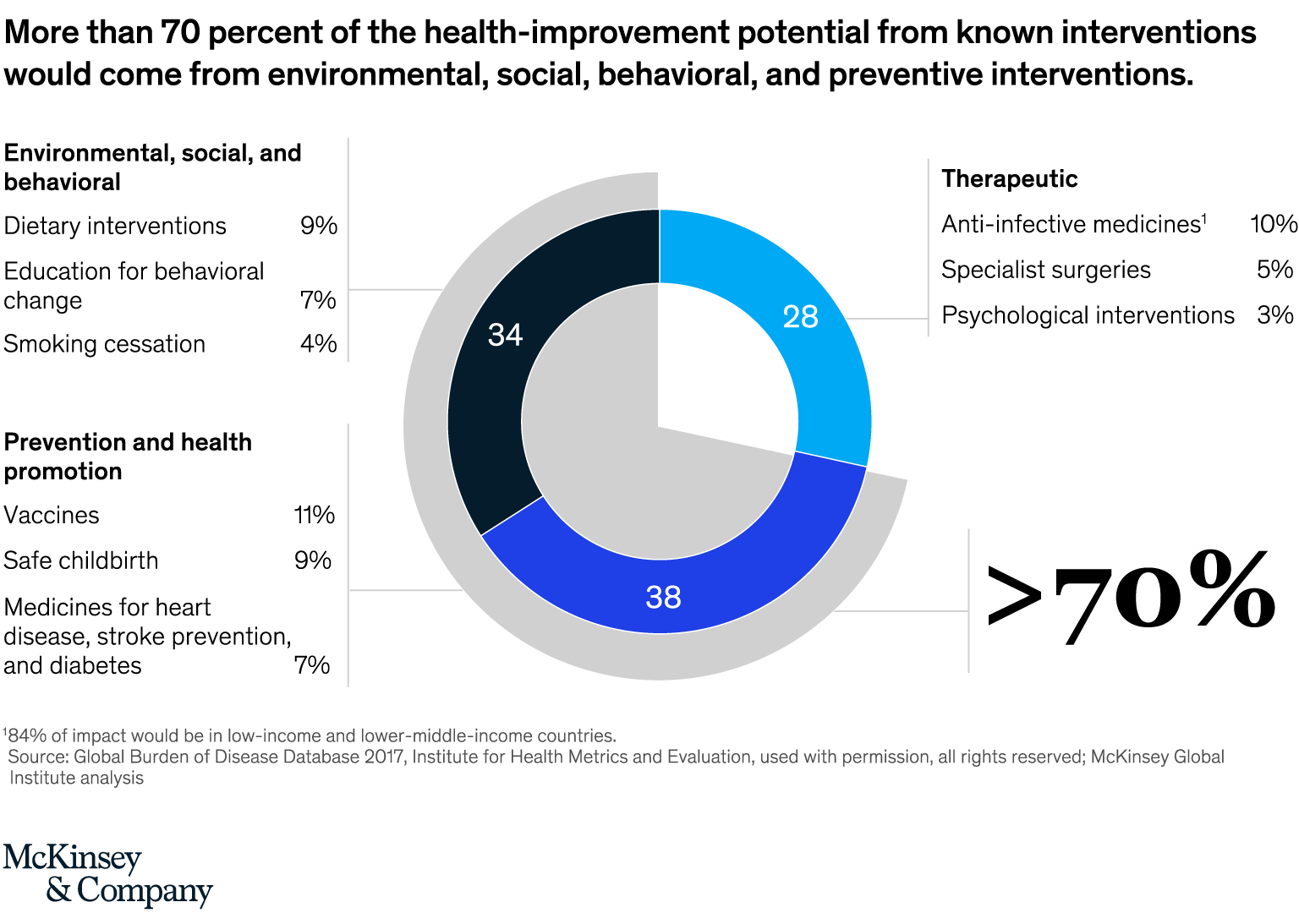How can the prioritisation of our health systems help us in rebuilding the post-pandemic economy?
Now with nearly 13 million confirmed cases and over 550,000 deaths worldwide, the COVID-19 pandemic continues to threaten lives and damage economies.
For the longest time, conversations about public health have always been about the allocation of funds yet almost never about how it can affect our economy. This crisis has brought into light the importance of this often-overlooked link.
In McKinsey Global Institute’s special report, Prioritizing health: A prescription for prosperity, they explored the benefit of investing in our health systems in relation to prosperity.
The economic prize of prioritising health
McKinsey’s research revealed several key benefits of focusing on health.
First, by applying our existing interventions to a broader segment of the population — using the most effective tools as much as possible — the current global disease burden can be reduced by about 40% in 2040.
Moreover, by investing in 10 key technologies in the visible pipeline identified by McKinsey, the total disease burden can be further reduced by 6 to 10 percent by 2040:
- Omics and molecular technologies
- Next-generation pharmaceuticals
- Cellular therapy and regenerative medicine
- Innovative vaccines
- Advanced surgical procedures
- Connected and cognitive devices
- Electroceuticals
- Robotics and prosthetics
- Digital therapeutics
- Tech-enabled care delivery
With an improved state of health, the global gross domestic product (GDP) can increase by approximately USD 12 trillion in 2040. This growth is driven by few early deaths, fewer health conditions, increased labour force participation, and an increase in overall productivity.
Lastly, from a cost-benefit standpoint, every dollar invested for health translates to USD 2 – 4 in economic returns.
This entails not an increased spending on health per se but diverting the funds to preventive measures which are lower in cost for the long run compared to the treatment of diseases. McKinsey’s findings also attribute 38% of the health improvement potential from existing interventions to preventative measures.
The economic prize of prioritising health
This opportunity for growth, while definitely appealing, will demand cooperation from all stakeholders. In this regard, McKinsey also laid down four imperatives:
- Make health a priority in economic and social discussions, keeping it in everyone’s agenda.
- Invest in building resilience.
- Tailor interventions to aid disadvantaged groups. This would promote equity at the same time.
- Build on the areas of innovation accelerated by the COVID-19 pandemic, intensify research on underfunded domains, and adopt innovative funding models.
The authors noted that the figures in their study are not intended to forecast health trends. Instead, their estimates serve as a broad insight on what can be attained by shifting our focus to health and what beginning steps can be taken to make it happen.
“As countries emerge from the COVID-19 crisis, we have a once-in-a-generation opportunity to rethink the role of health in a post-pandemic future,” the authors said.
If you are interested in diving deeper into the McKinsey research or if you want to find out how they came up with their estimates, you can download the full article (PDF).











